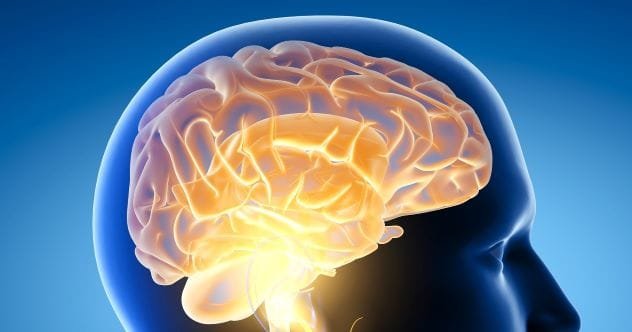The brain is truly amazing, a powerhouse in our heads. It’s said to generate enough electricity to power a small lightbulb! But with so much still unknown, a lot of myths have popped up over the years. Ready to separate fact from fiction? Let’s dive into some of the most common misunderstandings about our incredible brains.
10. Myth: Bigger Brains Mean More Intelligence
You might think a bigger brain automatically means a smarter person. But that’s not quite how it works! Real intelligence isn’t about overall brain size. Instead, it’s more about the connections between brain cells, called synapses. Things like the size of your frontal lobe and the amount of gray matter play a bigger role than just how big the brain is.
Some studies have noticed that taller people sometimes have slightly larger brains. However, this doesn’t mean taller folks are naturally more intelligent. You can’t judge intelligence by height or brain size alone. So, don’t worry about size; it’s the connections and structure that count for brainpower!
9. Myth: Drinking Alcohol Kills Brain Cells
It’s a common warning: “Drinking alcohol kills your brain cells!” While it sounds scary, research shows alcohol doesn’t actually murder your brain cells. However, it can mess with how your brain works and lead to other serious issues. For instance, heavy or binge drinking over long periods can damage how neurons send messages to each other. This could result in memory problems, poor muscle coordination, or even amnesia.
On the other hand, some studies suggest that drinking in moderation might not harm your brain in the same way and could even have some health benefits. So, while a drink here and there might be okay, it’s best not to overdo it for your brain’s sake.
8. Myth: We Only Use 10% of Our Brains
You’ve probably heard this one a lot, maybe even in movies: we only use a tiny fraction of our brain’s potential. The idea of unlocking the other 90% sounds exciting, but it’s pure fiction. The truth is, we use much more than just 10% of our brain all the time! This myth has been around since the early 1900s, often used by motivational speakers to encourage us to reach our potential.
Brain scans and research clearly show that nearly all parts of the brain are active, unless someone has specific brain damage. Think about it: our brains use about 20% of our body’s energy. It wouldn’t make sense for such a small part of the brain to consume so much power. Brain imaging confirms that no area of a healthy brain is ever completely inactive.
7. Myth: Brain Function Automatically Declines with Age
Many believe that once you hit a certain age, your brainpower starts to fade. While our brains are fully developed around age 25, our cognitive abilities don’t have to take a nosedive after that. It’s largely up to us to keep our brains healthy as we get older to hold onto wisdom and knowledge. Living a healthy lifestyle by exercising, eating well, and staying social can really help protect your brain.
Some types of memory, like recalling lyrics to favorite songs (implicit memory) or knowing how to do tasks (motor memory), stay strong with age. Of course, there’s a difference between normal aging (like forgetting where you put your keys) and developing a medical condition. If you notice a rapid decline in thinking skills, it’s important to see a doctor. But general decline isn’t a given!
6. Myth: Classical Music Makes Babies Smarter (The Mozart Effect)
The “Mozart Effect” is another popular idea we’ve been told for years. The theory goes that if babies listen to Mozart or other classical music, their intelligence will get a boost. You might have even seen pregnant women playing classical music loudly or putting headphones on their bellies. Unfortunately, there’s no solid proof that this actually works.
A small study in 1993 with college students showed a temporary improvement in spatial reasoning after listening to Mozart, but it didn’t say anything about kids or unborn babies. Later, a large study by the German Federal Ministry of Education and Research found no evidence that classical music increases a child’s intelligence. So, while music is wonderful, it’s not a magic brain-booster for babies.
5. Myth: Brain Games Sharpen Memory and Thinking
Brain-training games can be fun, but there’s not much evidence they actually boost your memory or overall intelligence. These games are often advertised as a way to sharpen your mind and offer all sorts of brain benefits. However, there’s been a lot of debate about whether they truly deliver on these promises.
A report from the Stanford Center on Longevity found little proof that brain games lead to real improvements in cognitive skills. They suggested that activities with real-world benefits, like reading, socializing, exercising, or even gardening, might be more productive. While a small group, like older adults at risk for Alzheimer’s, might see some benefits, for most people, these games are likely just a fun diversion rather than a serious cognitive tool.
4. Myth: You’re Either Left-Brained or Right-Brained
We all have unique talents and personalities, but there’s no scientific proof that these differences come from one side of our brain being more dominant. It’s true that the left and right sides of the brain specialize in different tasks – the right side is often linked to creativity, and the left to analytical thinking. However, a 2013 study from the University of Utah found no evidence that people actually have a dominant brain side.
So why do we like to categorize ourselves this way? Humans enjoy sorting themselves into groups. It might also come from the fact that we have a dominant hand, foot, or eye. Believing too strongly in this myth might even limit your potential by making you think you’re only good at certain things. The truth is, both sides of your brain work together!
3. Myth: The Brain Performs Better Under Pressure
You might feel like you do your best work when a deadline is looming, but this usually isn’t true. The pressure of a deadline can certainly motivate you to work harder, but it doesn’t mean your brain will perform better. In fact, pressure can stress out your brain, leading to tasks not being done as well as they could be.
Studies have shown that stress actually makes it harder for your brain to function efficiently. It can interfere with learning and the ability to process information effectively. Research indicates that people who procrastinate tend to make more mistakes than those who work on a more consistent schedule. While everyone reacts differently to pressure, generally, our brains don’t function optimally when stressed.
2. Myth: Humans Have the Largest Brains
The adult human brain weighs about three pounds. That’s pretty significant, but it’s not the largest brain out there. A sperm whale’s brain, for example, can weigh up to a whopping 20 pounds, making it the largest of any animal species! However, a bigger brain doesn’t automatically mean a smarter animal. What’s more important is the brain’s size relative to the body’s size – comparing brain weight to the animal’s overall weight.
While humans have a large brain-to-body-mass ratio, we don’t top the charts for every brain part. For instance, the olfactory bulb, the area of the brain that processes smells, is relatively smaller in humans compared to an animal like an opossum. So, while our brains are impressive, “largest” isn’t always the case.
1. Myth: Your IQ Score Stays the Same for Life
Many people believe that an IQ score is a fixed number that defines your intelligence for your entire life. However, a person’s IQ can actually go up and down as they age. Our ability to recall information might peak around age 18, but emotional intelligence can continue to develop even into our thirties. Research shows that life experiences and education can change how our brains work, contributing to these changes in IQ scores.
It’s also important to remember that measuring IQ isn’t an exact science. Experts suggest there can be a margin of error of about 5 or 6 points either way at any given time. Plus, IQ tests compare your score to others of the same age. So, while a precise “true” IQ might be hard to pin down, it’s widely agreed that it can fluctuate throughout our lives.
Our brains are incredibly complex, and it’s easy to see how myths and misunderstandings can spread. As we’ve explored, many common beliefs about how our brains work – from only using 10% to alcohol killing brain cells – simply aren’t backed by science. Understanding the truth helps us appreciate our brains even more and make better choices for our cognitive health. Knowledge is power, especially when it comes to the amazing organ between our ears!
Which of these brain myths surprised you the most? Do you know any other common brain misconceptions? Share your thoughts in the comments below!










